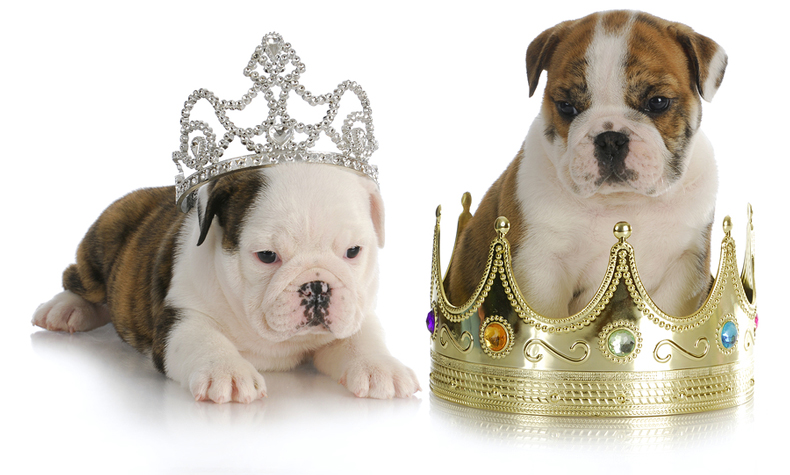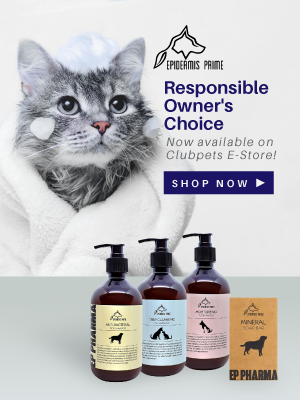Too much of a good thing?

Pet parents love to spoil their ‘babies’. The pet industry capitalizes on our obsession by providing an overwhelming variety of choices in cuisine, toys, gorgeous beds, designer pet carriers, matching leashes and collars, doggie spas and day care. As a result, some pet parents now overfeed and overindulge their pets and in the process create diva-like behaviour.
Much has been made of recent trends to pamper pets in human-like ways, but pet owners believe that such pampering is not a passing fad. Humans have always had affection for animals and pampering them with luxury items and services are but one means of expressing such affection. But can there be too much of a good thing?
Here are some examples of how you might be spoiling your pet.
Mollycoddling
Our environment and pet parenting styles greatly impact our dogs’ behaviour. Excessive pampering and coddling of any puppy or new dog can create a spoiled dog very quickly. Overindulgence can create a nervous, insecure and cranky dog. Nurturing behaviour to the point of overindulgence, although done with a good heart, usually backfires on a pet parent. It may cause aggressive behaviour when the pet doesn’t get its way. When you try to take a bone or toys away from your dog, or heaven forbid, move the cat to another spot on your bed, their cranky behaviour may erupt.
‘Overspa-ed’
Treating your dog to a spa treatment or an indulgent grooming session will not only help to get rid of fleas, but can also help skin irritation. There are many different products and treatments on the market to help soothe a dog’s irritated skin. However, these sessions should be done in moderation as well. Animals need the natural oils that are present on their skin, and excessive bathing can wash those oils away and actually make the skin problem worse. If your dog has problem skin, inform your groomer so he can choose a shampoo that is mild, and made from natural ingredients. Shampoos with too many chemicals and deodorants can cause more irritation to your pet’s skin, possibly creating more of a problem for you to deal with.
Over-feeding
Let’s face it. Our pets are our children and we like to indulge them with food… and lots of it. Studies show that up to 50 per cent of pets are overweight or obese. We’re killing them with kindness. To veterinarians, overweight pets are like furry time bombs with each extra kilogram of body fat ticking away at a pet’s longevity, vitality and mobility. Studies show that pets kept at their ideal body weight live 15 per cent longer – that’s an average of two years! Ask your vet exactly what food to feed and how much, then measure it out precisely with a measuring cup.
Excessive treats
There is nothing wrong with spoiling your pet with treats, as long as you don’t ruin your pet’s appetite or the relationship you both share. Giving your pet excessive treats will bring about obesity, dental disease, spoiled appetite and begging. Giving ‘free’ treats instead of ‘pay check’ treats for good behaviour can create severe behaviour problems that too often become life-threatening. As a rule, treats should never account for more than 10 per cent of your dog’s food intake. Your dog’s food is his sole source for the nutrition he needs, so do not ‘fill’ your pet up on treats before mealtime.
Over-supplementing
Supplements are a tricky call. Some think it is unnecessary while others over supplement, and that is where the danger lies. Vitamins B and C are water-soluble, which means that whatever the body does not use is eliminated in the urine. You basically cannot ‘overdo’ the vitamins except that too much can cause loose bowels. Vitamins A, D, E and K are fat-soluble and it is possible to cause problems by over-supplementing. Sometimes the problems can be as bad, if not worse, than under-supplementation. As a general rule, supplements should be given to make up or balance what the diet itself may lack. For example, a dog that doesn’t like fish can definitely use some fish oil as a supplement for its fatty acids content. There is no magic formula and supplements should be considered on a pet-by-pet basis.
Just as neglect and isolation may exert an adverse influence, excessive indulgence can also contribute to the development of dysfunctional behaviour. In fact, there has been evidence suggesting that spoiling your pet and dependency-enhancing activities may impede a pet’s ability to function independently, thereby impairing its problem-solving capabilities. Overly dependent pets may become perpetual puppies and kitties, and are often prone to exhibit disruptive separation anxiety when left alone. Since overly indulgent owners are less likely to be assertive, these signs of aggression may develop into something more serious if left uncorrected.








